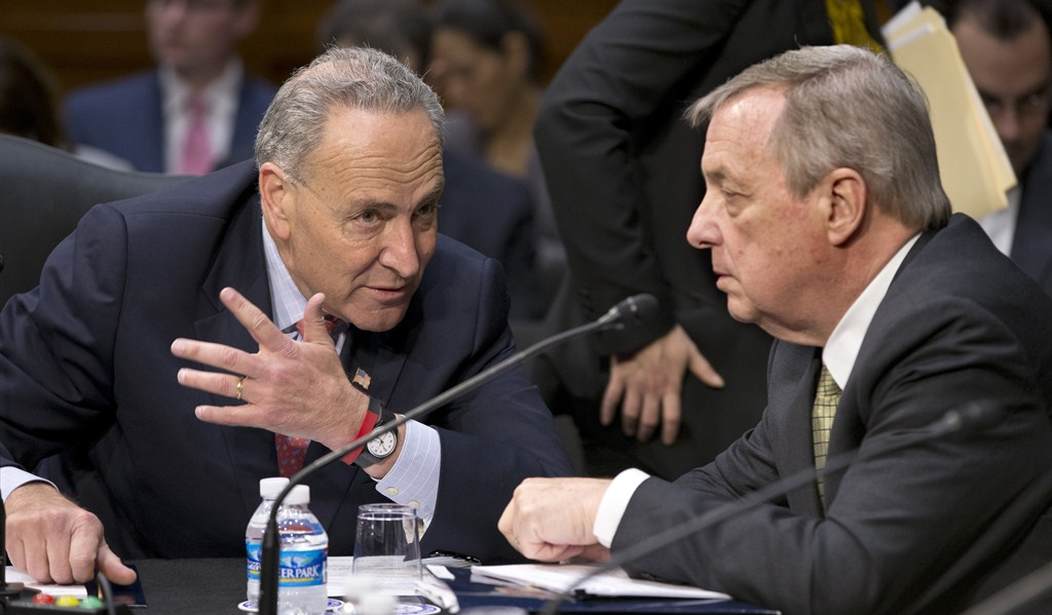“If we get stuck talking about amnesty, we lose.”
For the third time in eight years, the U.S. Senate is debating what many in the media call a landmark immigration bill. This time around, proponents of the bill are cashing in on lessons learned from failed attempts in 2006 and 2007. Chief among those lessons is that words matter.
Last week, Karl Rove wrote, “Republicans must consider the impressions they will create by what they say.” Rove, of course, was very supportive of the failed 2006 and 2007 efforts in his capacity as political guru for then-President George W. Bush.
The main purpose of Rove’s piece in the Wall Street Journal was to stress, “It is also important that Republicans avoid calling a pathway to citizenship ‘amnesty.’” In fact, nearly one-third of Rove’s words are dedicated to explaining why the Senate’s Gang of Eight bill is not amnesty.
Rove is exceedingly smart and, to his credit, very transparent in his end goal. He desperately believes that “immigration reform is now a gateway issue,” and that the Republican Party must be instrumental “in passing comprehensive reform with a path to citizenship” for the GOP to be competitive in national elections.
In other words, he believes it is politically savvy for the GOP to lead the charge on an amnesty bill. At the same time, he understands (and this is actually true) that the word itself is extremely unpopular. Rove knows it, and so do senators who want to vote in favor of the Gang of Eight’s bill.
Late last week, a source heard two prominent Senators discussing messaging and strategy. The conversation, as relayed to me, went something like this:
Senator A: Why are you talking so much about border security?
Senator B: If we are talking about border security, we win. If we get stuck talking about amnesty, we lose.
Recommended
As the Heritage Foundation has explained, “Amnesty comes in many forms.” There can be no doubt the Gang of Eight’s bill is an amnesty bill. Sen. John Cornyn (R-TX) acknowledged as much in an op-ed of his own last week:
“For starters, its border-security triggers are talking points disguised as policy: Legalization of the estimated 11 million illegal immigrants in the United States would be activated by meaningless promises rather than concrete results. Haven't we heard enough of that from Washington?”
This legalization-first approach is amnesty. Were the bill to become law, immigrants in the country illegally could apply for legal status in just 180 days. As a Registered Provisional Immigrant (RPI), the previously illegal immigrants could live and work in the country legally.
While frequently ignored, this legalization-first approach is the entire ball game. Once legal status is granted, it will never be revoked. The so-called pathway to citizenship may get shorter or longer, but legal status will remain.
Not only that, but the benefits of amnesty – the ability to live and work in America legally – is not an option for the four million individuals who are currently waiting in line outside the country.
These are uncomfortable facts, which is why senators hoping to woo conservative support will spend the next few weeks talking about “border security.”
On cue, Rove explains “Leading Senate Republicans (including Jeff Flake, Rand Paul and Marco Rubio) support a pathway to citizenship, but only if the border is first secured.” Of course, his subsequent claim that the “bill's path to citizenship doesn't open until the border has been secured” is in direct conflict with Cornyn’s assessment.
Even more uncomfortable though is this analysis by the Examiner’s Byron York:
“Cornyn’s words suggested that he intended to do away with legalization-first, but in fact [his amendment] would not require that security improvements actually be in place before legalization. It's just the opposite; his proposal keeps the legalization-first structure of the Gang bill. So why did he specifically criticize legalization-first?”
In the absence of another scandal, “border security” will dominate headlines and newscasts this week. That’s what Barack Obama, Chuck Schumer, and their Republican friends want.
While the Orwellian language may be reminiscent of 1984, the playbook looks much like 1986 when Congress granted amnesty to three million people. Our nation cannot afford to repeat the mistakes of the past, and senators who respect the rule of law will call the bill what it is: amnesty. Sorry, Karl.

























Join the conversation as a VIP Member